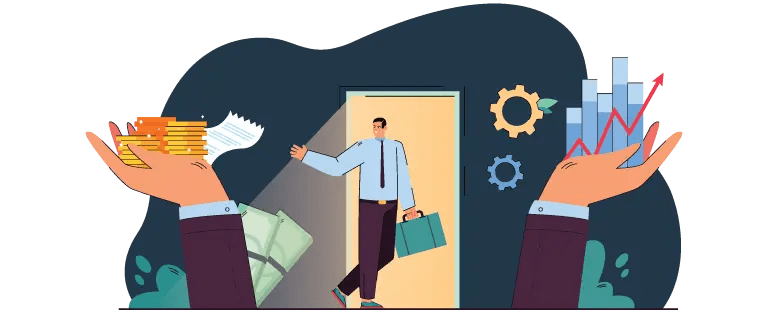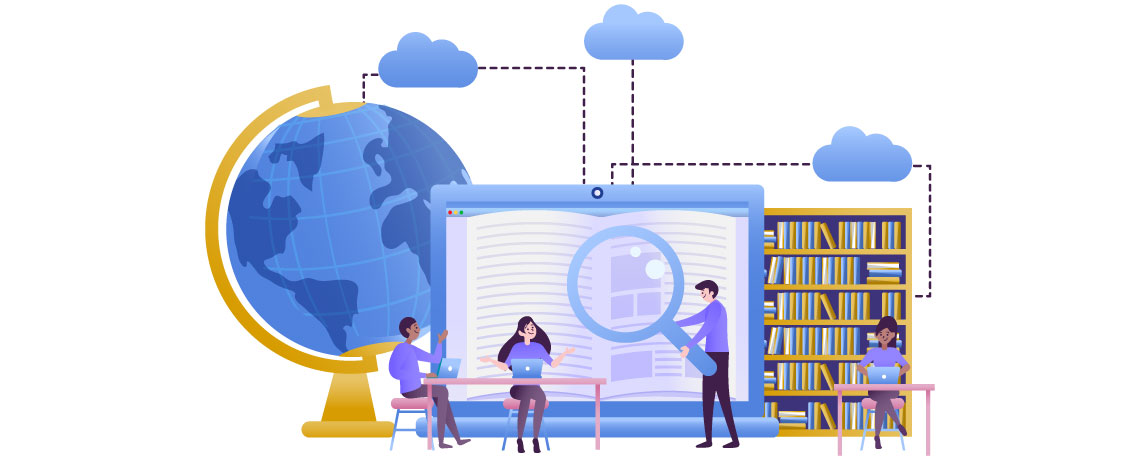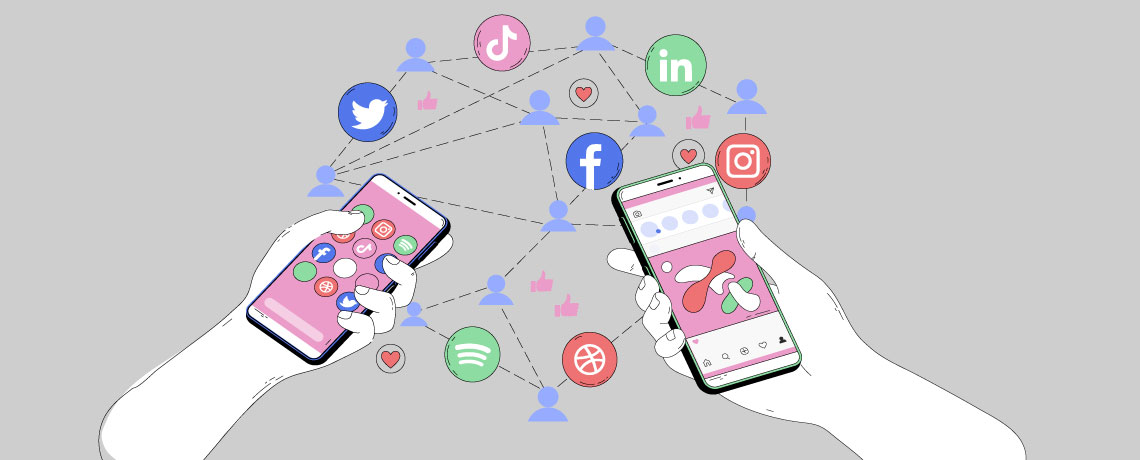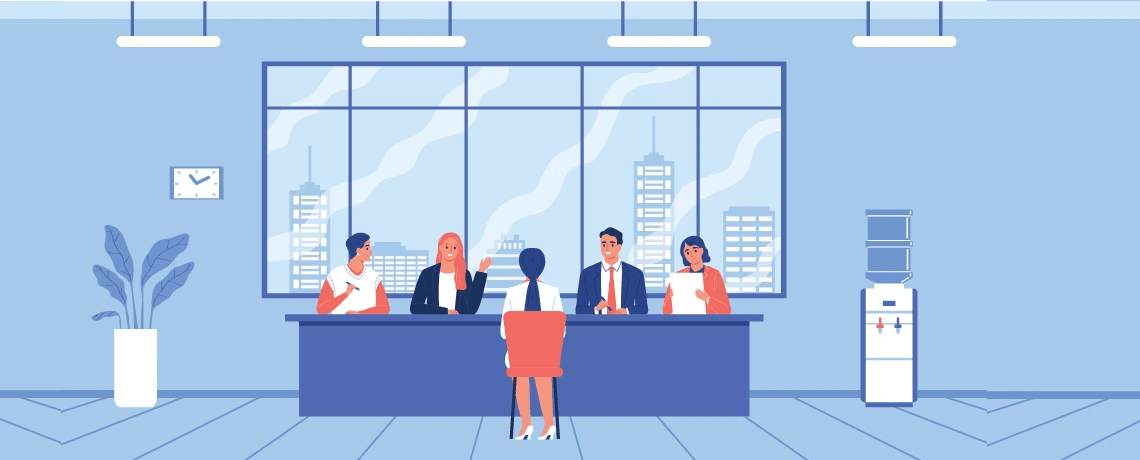Sleep Deprivation, Its Symptoms and Effects
![sleep_deprivation[1] sleep_deprivation[1]](https://i0.wp.com/www.mahindrauniversity.edu.in/wp-content/uploads/2023/04/sleep_deprivation1.jpg?resize=1140%2C460&ssl=1)
Sleep deprivation means getting an inadequate amount of sleep. Did you know any average adult requires seven to nine hours of sleep?
There are at times when you wake up from sleep and find yourself quite tired and worn out. Many of us have the aftereffects of sleep deprivation. It makes people think about probable solutions for this.
Some people are proud that they hustle and cannot get adequate sleep. But this can be detrimental to their health. Lack of sleep has side effects, primarily affecting your health and the brain’s cognitive function. It may cause a person to be unable to reason and behave differently than usual as it influences daily performance and the ability to think clearly.
What is Sleep Deprivation?
Sleep deprivation is when one does not get enough sleep. An average person must sleep for 7 to 8 hours a day. It is not a disorder but might be a symptom which may lead the path to other underlying health issues. This can be due to stress caused by family, friends or work.
There is two main types acute and chronic sleep deprivation
Under Acute sleep deprivation, sleep is interrupted for a short period, leading to poor sleep. Example while staying awake all, watching your favourite shows or studying hard the night before for your exam.
Chronic deprivation is when a person does not get proper sleep for weeks, months or even years.
Symptoms of Sleep Deprivation
Even if you generally sleep well, the sleepless night can be nearly impossible to bypass.
Symptoms of sleep deprivation include:
- Irritation
- Tiredness
- Memory condition
- Depression/feeling extremely low
- Difficulty in concentration
- Dearth of motivation
- Judgment issues
Effects of Sleep Deprivation
Poor Memory: Sleep deprivation leads to a lack of memory retention, as studies have shown sleep strengthens our memories. During sleep, the brain reinforces certain neural connections and combines the lessons learned daily. It also removes the unnecessary memories not required. So not getting proper sleep will make your brain fail to do its function and distort recent events. As a result, the long-term memories will be distorted and unclear during your sleep-deprived time. This is why our grandparents, who did not have the distraction of phones, laptops or work from home, have sharp memories while we struggle to recall what our parents told us just a few hours ago.
Decreased Cognition Power: The feeling when you are unable to comprehend or work on your tasks despite having a night’s rest? Not receiving good quality of sleep results in sleep deprivation that affects daily cognitive skills. The ability to process our thoughts and experiences through our senses is known as cognition. As it is required to learn and grow, a lack of understanding is worrisome among college students and makes learning lessons quite challenging. In addition, sleep-deprived adults may find tasks such as driving and crucial decision-making challenging.
Mental Health Issues: Mental Health issues rise after a series of nights of inadequate sleep. Sleep deprivation and depression come in together. Under depression, you either get less or a lot of sleep. The study finds that those who sleep for less than 6 hours or more than 8 hours are more likely to get depression than those who come in between the time hours.
Risk of Alzheimer’s Disease: It is said that one of the long-term effects on the brain due to sleep deprivation is Alzheimer’s. It has been found that when you sleep, the toxins in your brain are cleared up faster than when awake. This means that the brain removes the waste material responsible for Alzheimer’s (B- amyloid protein) and sends it to the cerebrospinal fluid while asleep. Thus, increasing the chances of the disease if you do not sleep well.
These effects show us the importance and necessity of sleep in our lives. We all need good sleep to function better and perform our duties responsibly.
Read Your Next Blog

Mass Media and Communication: Key Differences, Careers & Salary Prospects

LL.B. After 12th: Eligibility Criteria, Entrance Exams & Career Scope

Career after MBA: Top Options, Salaries & How to Choose the Right Path

What is the Scope after BBA: Career Opportunities, Salary Expectations & More

Masters in Journalism and Mass Communication: Exploring Career Scope in the Digital Age

Turn Your Creative Ideas into Compelling Designs with a Bachelor of Design Degree

B.Tech. CSE vs B.Tech. AI: Which One is a Better Career Option After 12th

From Classroom to Concierge: How a BBA (Hons.) in Hospitality Management Builds Global Careers

From Application to Interview: The Complete MBA Admission Journey Explained

Turning Ideas into Enterprises: How Today’s Students are Becoming Tomorrow’s Founders

Solving Global Challenges with Microscopic Solutions: The Power of Bio-Tech Synergy

Why Culinary Arts and Hospitality Management are Trending in Today’s World

The Growing Importance of Legal Tech: Key Factors Shaping the Future of Law

How Artificial Intelligence is Shaping the Next Generation of Engineers for Industry 4.0

How BBA LL.B. Degree can Help You Shape Law, Understand Business and Lead the Future

Shape Narratives, Build Brands & Lead Media with a BA in Journalism and Mass Communication

B.A. LL.B. Course Details: Duration, Fees, Subjects, Syllabus, and Admission 2025

Unveiling the World of Hospitality Management: Crafting Memorable Experiences

What is Journalism and Mass Communication: Crafting Stories That Shape the World

How to Become a Lawyer: A Step-by-Step Guide to a Rewarding Legal Career

Be a Master of the Smallest Particle Alive and Know What is Nanotechnology

Engineering Aspirations: Your Guide to B.Tech Courses and Admissions 2025

Mastering the Law: Your Ultimate Guide to the 3-Year LLB Course Syllabus

Take a Flight to Success by Knowing the Answer of What is Aerospace Engineering

LL.B. Course Details: Everything You Need to Know to Kickstart Your Legal Career

From Classrooms to Coding: Courses After 12th Computer Science for Aspiring Tech Wizard

What is Mechanical Engineering: The Science Behind Machines and Mechanics

From Courtrooms to Corporate Offices: Government Jobs You Can Land with a BBA LL.B.

Essential BBA Course Details: All You Need to Know About Business Studies

Design the Future with a B.Des – Where Creativity and Strategy Collide

Explore the Future: Top B.Tech. Courses to Kickstart Your Engineering Career

From Guest Services to Executive Suites: Navigating Your Journey with B.Sc. in Hospitality Management Course

From Resorts to Restaurants: Exploring Jobs After Hospitality Management

From Data to Discovery: How Biomedical Data Science is Accelerating Breakthroughs in Medicine

Step into the World of Finance: Your Guide to BBA Finance Admissions and Opportunities

Climbing the Academic Ladder: Your Ultimate Guide to Doing a Ph.D. in India

Power Up Your Potential: Best Engineering Courses After 12th For Tech Enthusiasts

System Engineering: Building a Resilient Career in a Rapidly Changing World

Making the Right Choice: Exploring the Best Career Options After 12th Grade

More Than Just Litigator: 10 Rewarding Career Options After B.A LL.B. (Hons.)

Develop Media Literacy and Form a Career in Journalism and Mass Communication

Is Mechanical Engineering a Good Career? Exploring Career Paths & Benefits

Innovate Infrastructure Development – Different Types of Civil Engineering

Give a Boost to Your Technologically-advanced Career with M.Tech. Courses

Different Types of MBA Courses – Gain Valuable Skills for the Business World

Elevate Your Leadership Expertise with a Doctorate in Business Administration

Lay a Solid Foundation for Your Career with the Exploration of Types of Mechanical Engineering

Embrace the Science of Healing and Innovation with Biotechnology Engineering Scope

Discern Your Dream Career in Media with the Scope of Journalism and Mass Communication

Exploring Law Courses After 12th: Your Gateway to a Diverse Legal Landscape

The Power of Connectivity: Unveiling the Scope of Electronics and Communication Engineering

Exploring the Expansive Horizons: The Scope of Journalism and Mass Communication

Achieving Educational Excellence: A Deep Dive into Master’s Degree in Education

Beyond the Degree: Unveiling the Multifaceted Benefits of Doing an MBA

Bridging Gaps, Building Futures: Exploring the Endless Scopes of Civil Engineering

Choosing Your Legal Path: BA LLB vs BBA LLB – Which Course is Better?

Kickstart Your Journey With Mass Communication Courses After 12th Grade

Decoding the Difference Between Electrical and Electronics Engineering

Next Steps: Exploring Top Computer Science Engineering Courses After 12th

Journalism Courses After 12th – Understanding the Significance of a BA in Journalism and Mass Communication

Forge Your Path to Excellence with Ph.D. Admission – Dive Into Details

Why MBA After Engineering: Transcending from Technical Wizardry to Leadership Mastery

Know the Scope of PhD in Economics and uncover hidden patterns of economic brilliance.

A Closer Look Into the BBA Computational Business Analytics Admission Process

From Circuits to Codes – Discover a Wide Range of Career Options After B.Tech. ECE

The Nanotech Revolution: The Astonishing Future Impact of B.Tech. Nanotechnology

From Roads to Skies: The Limitless Horizon of the Scope of M.Tech. in Transportation Engineering

Discover a New Era of Business Education with the Immense Scope of BBA in Computational Business Analytics

From Application to Acceptance – Navigate the Ph.D. Information Science and Technology Admission Process

Pave Your Path to Financial Brilliance with an Enormous Scope of BA Economics and Finance

Join the Digital Revolution with Diverse Career Options After B.Tech. ECE

Discover Your Eligibility for B.Tech. Biotechnology and Kickstart Your Career

Transform Your Career Trajectory with the Lucrative Scope of an Executive MBA

M.Tech. in Power Electronics and Renewable Energy Systems – Pursue New-age Careers

Ph.D. in Economics – Discover Innovative Solutions to Economic Challenges

M. Tech. in Autonomous Electric Vehicles – Dive Into the Future of Autonomous Vehicles (AV)

Construct a Better World with B.Tech. in Civil Engineering from Mahindra University

Acquire the Futuristic Mathematical & Computing Technologies with a Computational Mathematics Course

PhD in Business Administration – Dig Deeper into the Science of Management

B.Tech in Mechanical Engineering – Become a Master of Mechanics at Mahindra University

Shape Your Engineering Career with Mahindra University – One of the Best Engineering Colleges in Hyderabad

Transform Lives & Shape the World with Mahindra University – One of the Top Civil Engineering Colleges in Hyderabad

B Tech in Artificial Intelligence – The Next Big Thing in Technological Revolution

Lead the Tech Revolution with BTech CSE at Mahindra University – One of the Best Computer Science Engineering Colleges in Hyderabad

Kickstart Your Legal Career with Mahindra University – One of the Best Colleges for BBA LLB

Top BA LLB Colleges in Hyderabad – Training Exceptional Lawyers and Leaders

BTech Electronics and Computer Engineering Course – Engage in Independent and Life-long Learning

Best Colleges for Humanities and Social Sciences – Get World-class Training and Hands-on Learning Experience
![Arm_Yourself_with_Deep_Business_Knowledge_&_Insights_with_PhD_Program_in_Business_Administration_at_Mahindra_University[1] Arm_Yourself_with_Deep_Business_Knowledge_&_Insights_with_PhD_Program_in_Business_Administration_at_Mahindra_University[1]](https://i0.wp.com/www.mahindrauniversity.edu.in/wp-content/uploads/2023/04/Arm_Yourself_with_Deep_Business_Knowledge__Insights_with_PhD_Program_in_Business_Administration_at_Mahindra_University1.jpg?resize=1140%2C460&ssl=1)
Arm Yourself with Deep Business Knowledge & Insights with PhD Program in Business Administration at Mahindra University
![Emerge_as_a_Forward_thinking_Mechanical_Engineer_with_B_1140x460[1] Emerge_as_a_Forward_thinking_Mechanical_Engineer_with_B_1140x460[1]](https://i0.wp.com/www.mahindrauniversity.edu.in/wp-content/uploads/2023/04/Emerge_as_a_Forward_thinking_Mechanical_Engineer_with_B_1140x4601.jpg?resize=1140%2C460&ssl=1)
Emerge as a Forward-thinking Mechanical Engineer with B.Tech in Mechanical Engineering at Mahindra University
![B.Tech_in_Computer_Science_Engineering_(BTech_CSE)_Your_Gateway_to_Become_a_Computer_Genius_1140x460[1] B.Tech_in_Computer_Science_Engineering_(BTech_CSE)_Your_Gateway_to_Become_a_Computer_Genius_1140x460[1]](https://i0.wp.com/www.mahindrauniversity.edu.in/wp-content/uploads/2023/04/B.Tech_in_Computer_Science_Engineering_BTech_CSE_Your_Gateway_to_Become_a_Computer_Genius_1140x4601.jpg?resize=1140%2C460&ssl=1)
B.Tech in Computer Science Engineering (BTech CSE) – Your Gateway to Become a Computer Genius
![Digital_Marketing_is_Booming_Globally_1140x460[1] Digital_Marketing_is_Booming_Globally_1140x460[1]](https://i0.wp.com/www.mahindrauniversity.edu.in/wp-content/uploads/2023/04/Digital_Marketing_is_Booming_Globally_1140x4601.jpg?resize=1140%2C460&ssl=1)
The Scope of Digital Marketing is Booming Globally. Transform the Business Landscape with a BBA in Digital Marketing
![MU_Electrical20Computer20Engineering_1140x460[1] MU_Electrical20Computer20Engineering_1140x460[1]](https://i0.wp.com/www.mahindrauniversity.edu.in/wp-content/uploads/2023/04/MU_Electrical20Computer20Engineering_1140x4601.jpg?resize=1140%2C460&ssl=1)
India Calls for Multitalented Engineers. Be the One with the Electrical and Computer Science Engineering Course
![BA_LLB_Hons_Course_at_Mahindra_University[1] BA_LLB_Hons_Course_at_Mahindra_University[1]](https://i0.wp.com/www.mahindrauniversity.edu.in/wp-content/uploads/2023/04/BA_LLB_Hons_Course_at_Mahindra_University1.webp?resize=1140%2C460&ssl=1)
Do You Want to Pursue Law as a Career? Take BA LLB Hons Course at Mahindra University
![Management_&_Business_Administration_is_Tremendously_High[1] Management_&_Business_Administration_is_Tremendously_High[1]](https://i0.wp.com/www.mahindrauniversity.edu.in/wp-content/uploads/2023/04/Management__Business_Administration_is_Tremendously_High1.jpg?resize=1140%2C460&ssl=1)
The Scope of PhD in Management & Business Administration is Tremendously High. Understanding the Significance.

Civil Engineers Are New-age Superheroes. How is Mahindra University Moulding Futuristic Civil Engineers?

Be Legally Empowered by Pursuing Law | Top BA LLB (Hons) Colleges in Hyderabad

Pursue BA in Economics & Finance and contribute to India’s economic development

A Comprehensive Outlook On One Of The Highly Sought After Courses In Law: BBA LLB (Hons)

Why Revolutionary B.Tech Computer Science and Engineering Course Is The Choice Of Every Aspiring Student?

B.Tech in Computer Science & Engineering: A course for those who want to learn to lead forward

Manifesting excellent managerial skills and a fatter salary tag? It’s just a degree away.

Why BBA LLB is the right course for Law and Business enthusiasts in 2022

Here’s why B.Tech in Mechanical Engineering is one of the emerging courses for today’s talented youngsters

How Has Digital Marketing Turned Out To Be A Boon For Creative Individuals ?

Reasons Why You Should be active in Sports, Extracurriculars at The University

Skillsets That Give You an Edge Over Others in Securing Your Dream Job

Getting Back to Campus in The Post-COVID 19 World, 5 Hacks You Should Remember

How has Computer Science Engineering (CSE) evolved to create a demand among engineering aspirants

How B.Tech In Mechatronics Engineering Contributes In Making Human Life Easier?

Most Promising Engineering Disciplines with the Best Opportunities in 2025


































































































































![whyistraining&placementcellimportant[1] whyistraining&placementcellimportant[1]](https://i0.wp.com/www.mahindrauniversity.edu.in/wp-content/uploads/2023/04/why20is20training2020placement20cell20important1.png?resize=1140%2C460&ssl=1)
![TheDifferencesbetweenRights&Duties[1] TheDifferencesbetweenRights&Duties[1]](https://i0.wp.com/www.mahindrauniversity.edu.in/wp-content/uploads/2023/04/The20Differences20between20Rights2020Duties1.png?resize=1140%2C460&ssl=1)
![SelfLoveBlogImage2[1] SelfLoveBlogImage2[1]](https://i0.wp.com/www.mahindrauniversity.edu.in/wp-content/uploads/2023/04/Self20Love20Blog20Image2021.png?resize=1140%2C460&ssl=1)










































































































